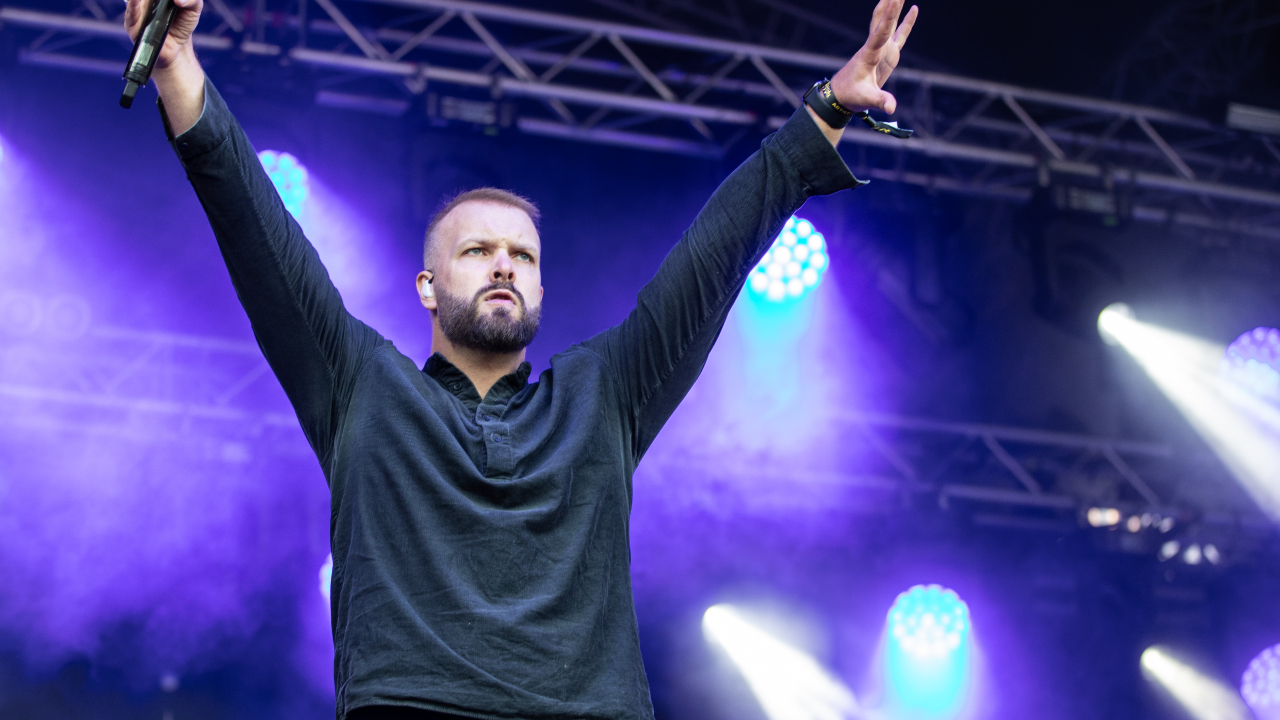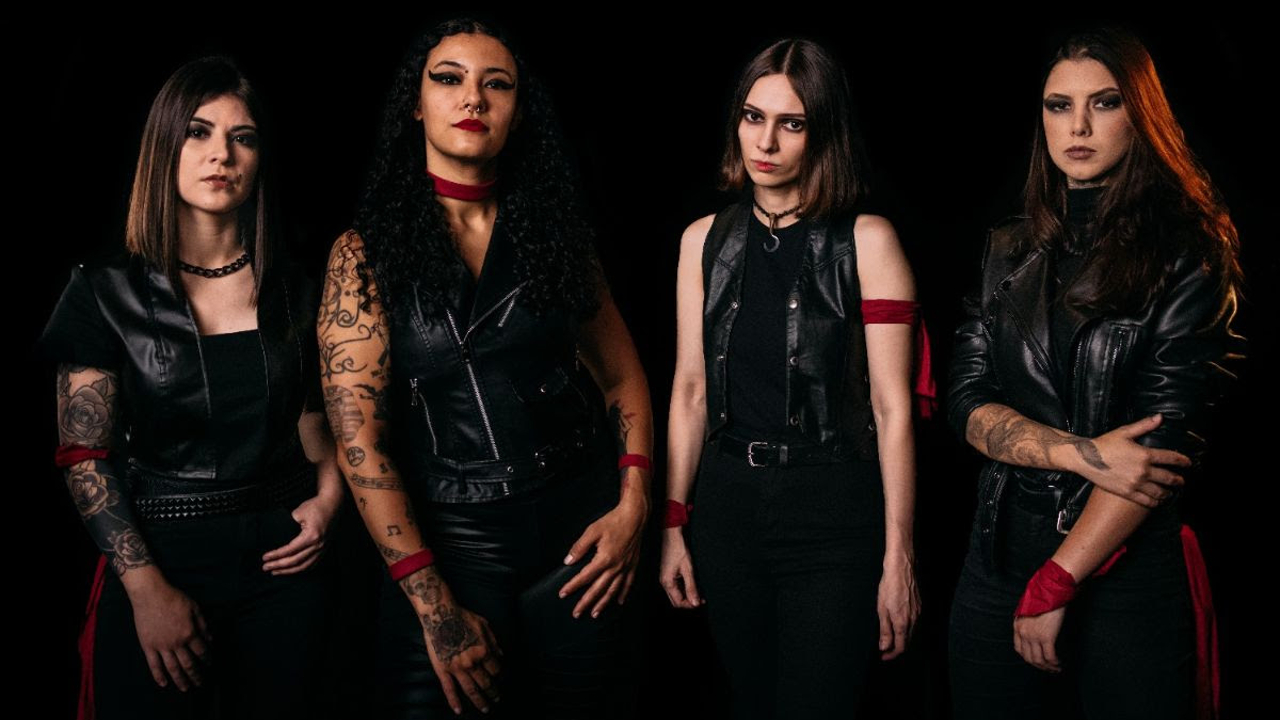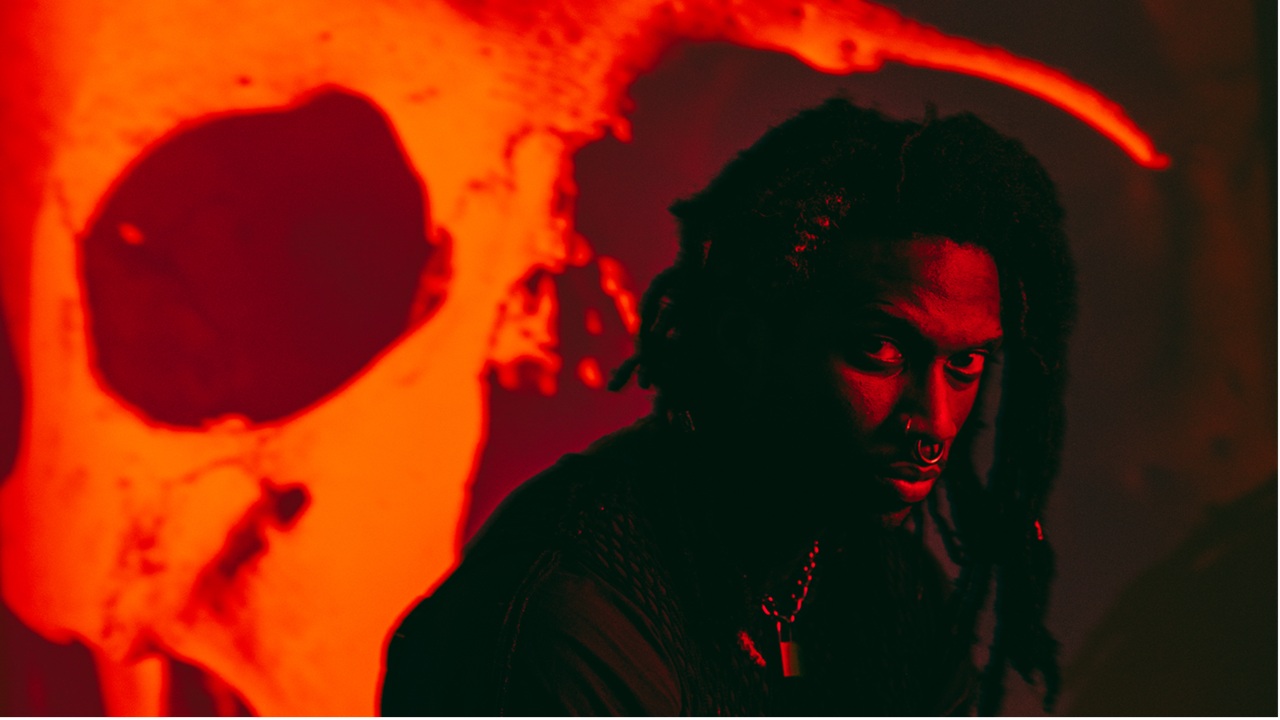“My uncle would drink, say he was possessed and run after people with knives”: Why heavy metal is turning its back on booze
Metal stardom has long been synonymous with drinking and excess. However, the genre’s musicians are giving up alcohol younger and younger. We investigate why.

Select the newsletters you’d like to receive. Then, add your email to sign up.
You are now subscribed
Your newsletter sign-up was successful
Want to add more newsletters?

Every Friday
Louder
Louder’s weekly newsletter is jam-packed with the team’s personal highlights from the last seven days, including features, breaking news, reviews and tons of juicy exclusives from the world of alternative music.

Every Friday
Classic Rock
The Classic Rock newsletter is an essential read for the discerning rock fan. Every week we bring you the news, reviews and the very best features and interviews from our extensive archive. Written by rock fans for rock fans.

Every Friday
Metal Hammer
For the last four decades Metal Hammer has been the world’s greatest metal magazine. Created by metalheads for metalheads, ‘Hammer takes you behind the scenes, closer to the action, and nearer to the bands that you love the most.

Every Friday
Prog
The Prog newsletter brings you the very best of Prog Magazine and our website, every Friday. We'll deliver you the very latest news from the Prog universe, informative features and archive material from Prog’s impressive vault.
‘Sex, drugs and rock’n’roll’ is an adage that everyone’s familiar with. Among the mainstream, stories of Mötley Crüe’s drunken partying and Ozzy Osbourne peeing on the Alamo while hammered are just as well-known as either artist’s actual music. But, in recent years, the tides have started turning.
The 21st century has seen a host of heavy metal nobility turn their back on booze after decades of over-use. Metallica frontman James Hetfield’s admittance into rehab was one of the core events in 2004 documentary Some Kind Of Monster, almost 20 years after the press gave him and his bandmates the nickname ‘Alcoholica’. Slipknot’s Corey Taylor got clean in 2003 after a drunken near-death experience hanging from a balcony, and this March, Lamb Of God’s Randy Blythe released Just Beyond The Light: a memoir/self-help book that detailed his past struggles with substances.
In 2022, The Guardian interviewed a host of other rockers who broke up with the bottle after years on the road, from Alice Cooper’s guitarist Nita Strauss to Aðalbjörn “Addi” Tryggvason of post-metal explorers Sólstafir. Now, though, we’re seeing a new crop of metal musicians emerge – ones who’ve been abstaining from alcohol since before their bands even began.
Harry Nott is the 29-year-old lead vocalist of UK death metal/hardcore up-and-comers Burner, who released their debut album It All Returns To Nothing in 2023. He adopted the straight edge lifestyle – no drinking, no smoking, no recreational drug use – as a teenager while living in rural Yorkshire.
“In the countryside, life is pretty dull, so kids turn to drinking fairly quickly,” he explains. “I used to go to parties and drink, but I found that it wasn’t really a solution for anything. It didn’t give me anything that I was looking for. I remember, after one particular house party, people I knew were arguing with each other, and other people I knew were throwing up and seemed to be having a really bad time. I woke up the following day and I said, ‘Fuck this! I’m going straight edge.’”
Outlooks like Nott’s are becoming increasingly common. In metal, while the veterans at the top of the totem pole are abandoning their old vices, the rising stars and current arena-fillers just aren’t interested. Trivium’s Matt Heafy hasn’t drunk while on tour since 2005; Jinjer frontwoman Tatiana Shmayluk gave up alcohol in her 30s, despite never being addicted; Employed To Serve guitarist/vocalist Sammy Urwin is openly straight edge; and Gojira’s Mario Duplantier advised bands in 2017, “Don’t do drugs, don’t do too much alcohol, and work very hard on the music.”
It’s a trend reflected in wider society, especially among Gen Z and junior Millennials. According to the charity Drinkaware, 25 percent of 16-to-24-year-olds in Britain identified as teetotal in 2022. Across the pond, a recent Gallup survey found that, from 2021 to 2023, only 62 percent of American adults under 35 said they drank. By comparison, from 2001 to 2003, that figure was 72 percent.
Sign up below to get the latest from Metal Hammer, plus exclusive special offers, direct to your inbox!
The reason why more and more people are staying away from drink isn’t universal. A user in the Reddit group r/millennials asked last year, “Millennials are drinking less. I know I am. What are your reasons?”, and received more than 7,600 responses. The answers ranged from “Money” to “Good sleep, no hangover” and “It doesn’t go well with my fitness goals”. This writer, 28 at time of publication, went straight edge aged 15, not liking the idea of doing something he’d regret while intoxicated.
Einar Solberg, the lead singer and keyboard player for Norwegian progressive metal favourites Leprous, is 40 years old but first felt that drinking wasn’t for him in his early teens. He’s never once been drunk and is yet to find something alcoholic that he enjoys the taste of.
“I was very against it from the beginning,” he explains. “Kind of by nature, I never liked it.”
Solberg admits that his family history influenced his aversion. His father was an alcoholic, as were three of his four uncles. He believes that drinking was at least partly responsible for the deaths of two of his uncles and his father, who took his own life when his son was 19.
“He was at a point in his life where he refused to receive any help,” the singer says, “because in his mind he was above others, even the psychologists. He got more isolated, more and more alone, in the end. One day it was OK to talk with him, on another it was extremely challenging and scary.”
Fernanda Lira, singer/bassist of Brazilian death metal unit Crypta, was 28 when she had her last drink. A member of thrashers Nervosa at the time and one year out from launching her current band, she became teetotal after almost suffering an anxiety attack during a Central American tour in 2018.

“We were in Mexico and I was sleeping in a single room,” she says. “At 4am, I heard banging noises and people screaming. I looked out of the window and there was this group of friends – they were calling each other by their names – beating the shit out of each other! There was blood all around, it was horrible, and you could see that they were really, really drunk. It was just terrifying to see that.”
Similar to Solberg, Lira’s family has a history of alcohol abuse. “My grandpa would beat the shit out of my grandma and beat the shit out of my mum, too,” she reveals. “I lost an uncle to alcohol and my other uncle, one Christmas, tried to kill us. Whenever he would drink, he would say that he was possessed by the Devil and run after people with knives.”
Nott, Solberg and Lira all agree that the ‘sex, drugs and rock’n’roll’ archetype, as commonly held a belief as it remains in 2025, is outdated. For one thing, the economy in metal music has transformed since the days of ‘Alcoholica’ and early Judas Priest, whose frontman Rob Halford quit drinking in 1986. With more bands and more labels about, and less money to go around thanks to the measly payouts from streaming services, opportunities to indulge in excess are limited, while musicians need to truly grind to make it big.
“I think for younger bands especially, it’s difficult,” says Nott. “You don’t have those resources, so the options are less available to you. But it’s also a self-imposed thing. If you’re a band and want to do well, you have to work hard as fuck, and you’re never going to get there by just getting pissed at every show you do.”
Plus, as Lira points out, the list of substance-related deaths in music has only grown since metal’s hedonistic heyday. She cites iconic pop-soul singer Amy Winehouse – who died of alcohol poisoning in 2011, aged 27 – as another one of the reasons why she stopped drinking.
“We’ve lost too many amazing, inspiring people to alcohol and drugs,” she says. “I feel so frustrated that I’ll never be able to watch Amy. And I’m so frustrated that she was having such a problem and nearly no one was helping her. I don’t think we need any more of those tragedies.”
In May 2013, Slayer guitarist Jeff Hanneman died at the age of 49, with the cause of death being announced shortly after as “alcohol-related cirrhosis of the liver”. In December 2020, Children Of Bodom’s 41-year-old frontman Alexi Laiho died of liver degeneration caused by long-term alcohol abuse. Along with the likes of AC/DC’s Bon Scott and Led Zeppelin drummer John Bonham, the pair were terrifying examples of the potentially fatal consequences of excessive drinking in rock and metal.
Solberg says that he’s never felt judgement from other musicians for not drinking. “Drinking heavily and stuff, yeah, maybe there is more of that in the rock scene, but there is also more of the opposite,” he explains. “I meet more people who don’t drink in the music scene than I do with people who have a nine-to-five job.”
Nott has experienced the same, saying that he felt the most looked-down-upon during his school days, although Lira has dealt with peer pressure and alienation in the metal scene because of her choice.
“When I quit drinking, I instantly became the ‘boring’ friend,” she reflects. “I lost so many friends because they were, like, bar friends. Instantly, people wouldn’t invite me anywhere. I was so upset because, by not drinking, I actually felt more energy. I can be the life of the party if I want to get crazy and sing and tell jokes.”
However, it seems that metal musicians who refrain from alcohol will go from outsiders to the norm should things continue as they are. With the genre now harder to find success in than ever before – and high-profile, alcohol-related deaths still shaking the scene – both the desire and the ability to balance a career with heavy drinking is thinning. Plus, as the broader statistics show, it’s just the way the rest of the world is going regardless.
“I don’t have any interest in being the different one, or doing something else than everybody else,” says Solberg. “The more people [staying sober], the better. In Gen Z, it’s more normal and more common. I never think about the fact that I’m not drinking – it’s not something I need to put thought into anymore.”
Burner and Leprous play Arctangent festival in Bristol in August. Crypta tour Europe from August 7 to 17.

Louder’s resident Gojira obsessive was still at uni when he joined the team in 2017. Since then, Matt’s become a regular in Metal Hammer and Prog, at his happiest when interviewing the most forward-thinking artists heavy music can muster. He’s got bylines in The Guardian, The Telegraph, The Independent, NME and many others, too. When he’s not writing, you’ll probably find him skydiving, scuba diving or coasteering.
You must confirm your public display name before commenting
Please logout and then login again, you will then be prompted to enter your display name.


